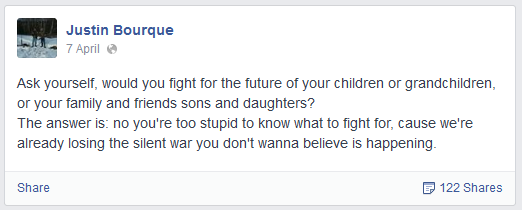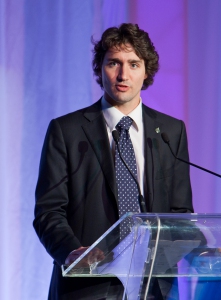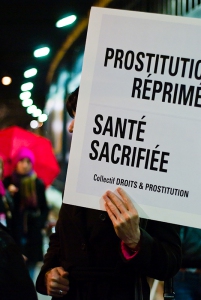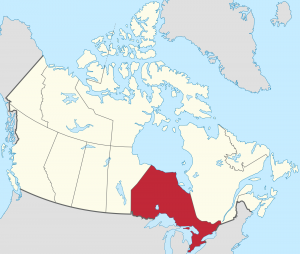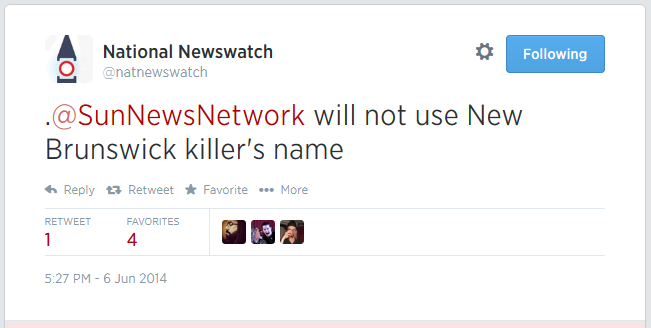
Sun News Network not to use Justin Bourque’s name (Tweet by National Newswatch)
We should remember the officers and their stories. Their names were David Ross, Fabrice Georges Gevaudan, and Douglas James Larche.
But we shouldn’t apologize for being interested in Justin Bourque and his story. After all, he is the person who did the shooting, therefore the story of why and how this shooting took place is much more in Justin Bourque’s story, and hardly at all in the officers’ stories. Yes, tell the stories of the officers, respect them and honour them. But this isn’t necessarily a zero-sum game. Honouring the officers does not necessitate obliterating Bourque from our consciousness. There is plenty of airspace.
Fortunately and unfortunately, there is only one Justin Bourque. I say unfortunately because it’s hard to do science on a sample size of one. We can do no better than to have hunches or guess at what events led to the behaviour, as people and their behaviours are absurdly complex. But erasing him is counterproductive, self-defeating. While it’s not going to be easy or even necessarily possible to come to any useful, potentially falsifiable conclusions, erasing the information will ensure that it’s impossible to do so. For now, let’s save everything. We don’t have to stare at it, no, but that’s something that should be up to us as individuals.
It’s almost… almost! like some elements of the Great Media Machine are trying to grift us with Three-card Monte. The money card might be there somewhere, but we’re encouraged to turn up distractions. But I’m not quite cynical enough to believe that Sun News Network doesn’t believe that what they’re doing is in the broader public interest.
Some people think Justin Bourque did this at least partly for the notoriety, and maybe that’s a factor. But looking at his Facebook will tell you that he must be at least slightly ideologically motivated. And either way, notoriety or ideology, we still give a shit about stuff like this not happening. We must not let our retributive don’t-give-him-what-he-wanted tendencies to lead us to cut off our noses to spite our faces.

